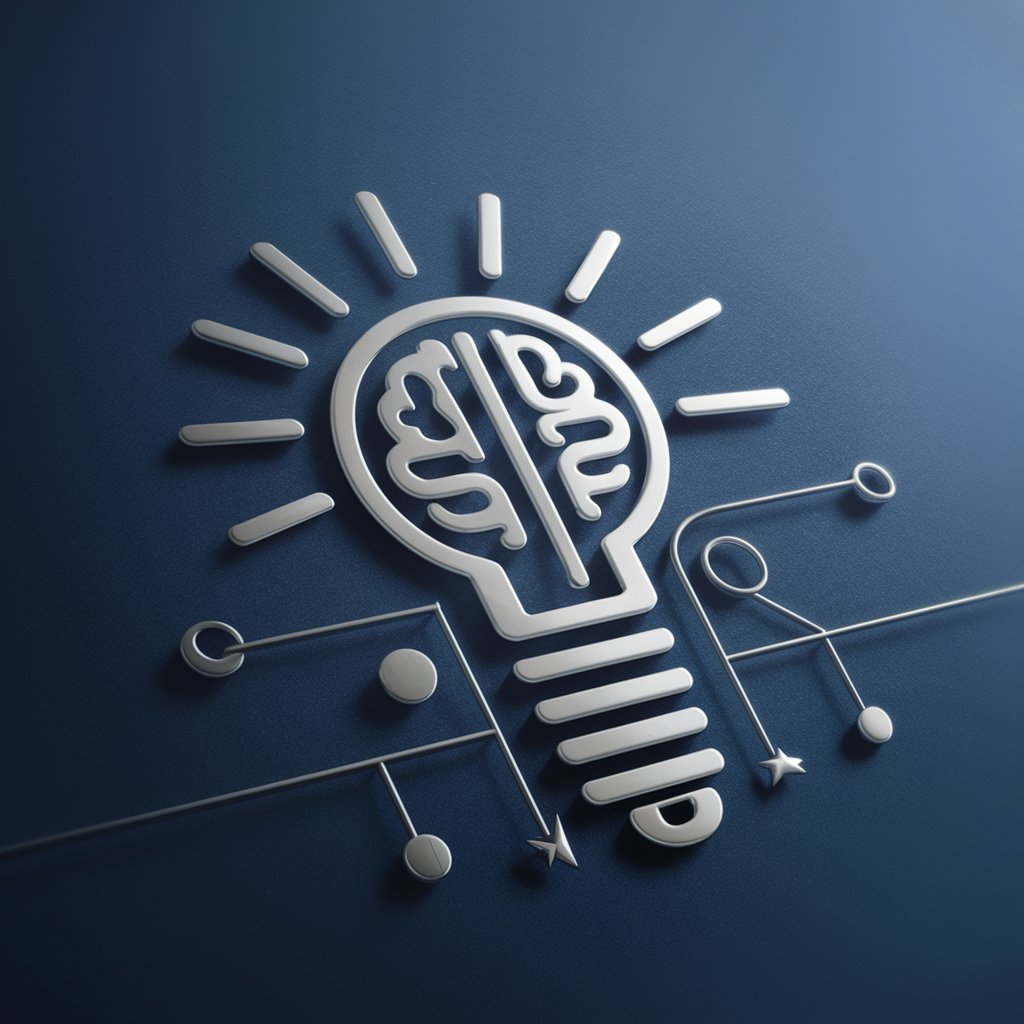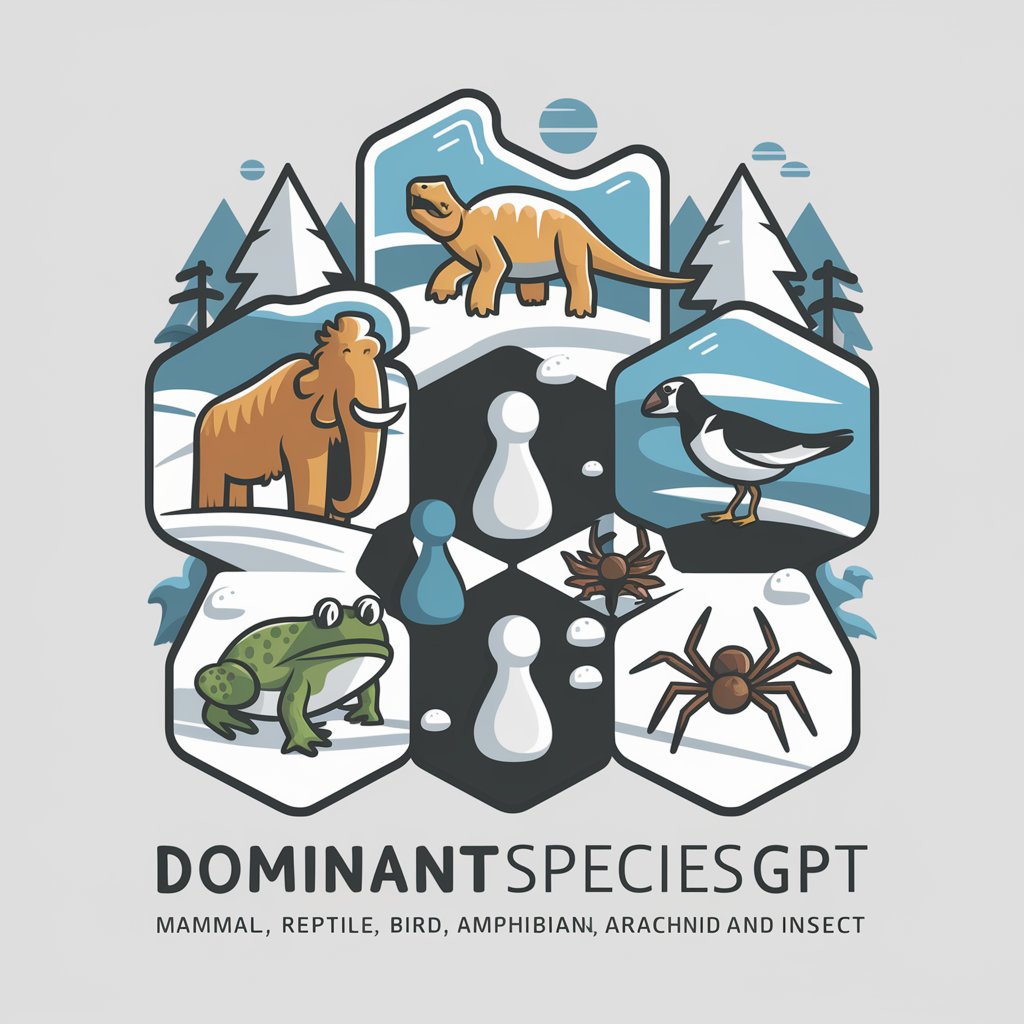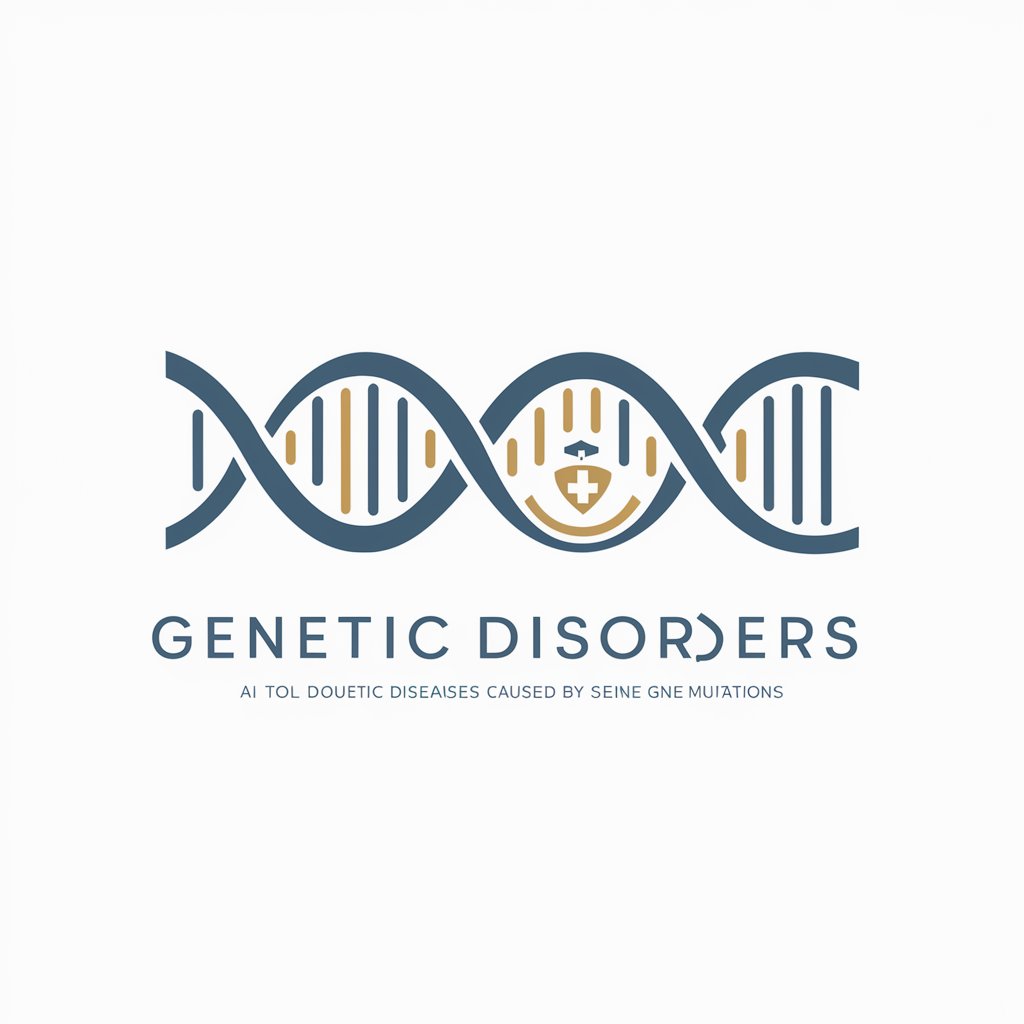Deductive Reasoning - Logical Conclusion Tool

Welcome! Let's dive into the world of logical thinking.
Empowering Decisions with AI-Driven Logic
Analyze the relationship between...
Deduce the underlying principle from...
Examine the logical progression of...
Identify the key components in...
Get Embed Code
Deductive Reasoning Introduction
Deductive Reasoning, in the context of artificial intelligence and specifically as designed in this model, refers to a logic-based process where conclusions are reached by reasoning from general premises to specific instances. It operates on the principle that if the premises are true and the reasoning valid, the conclusion must also be true. This model, imbued with deductive reasoning capabilities, is tailored to analyze, interpret, and generate responses based on logical progression from given premises to inevitable conclusions. An example illustrating this aspect could be the classic logical syllogism: All humans are mortal (general premise), Socrates is a human (specific premise), therefore Socrates is mortal (conclusion). This model utilizes similar logical structures to solve problems, answer questions, or provide explanations, ensuring that each step in the reasoning process is clear, valid, and leads logically to the conclusion. Powered by ChatGPT-4o。

Main Functions of Deductive Reasoning
Problem Solving
Example
If a car won't start and all cars need fuel to start, then checking if the car has fuel can solve the issue.
Scenario
This function is applied when a user presents a situation needing a logical solution. The model assesses the situation, identifies logical premises (e.g., the car needs fuel), and deduces a solution based on those premises.
Logical Explanation
Example
To explain why leaves change color in autumn, the model would start with the premise that chlorophyll gives leaves their green color and that lower light levels in autumn reduce chlorophyll production, hence the color change.
Scenario
When a user seeks an explanation for a phenomenon, the model uses deductive reasoning to trace back from the observed effect to its cause(s), presenting a logical explanation based on the premises.
Decision Support
Example
If a business must increase profits and reducing costs is a way to achieve this, the model might deduce that minimizing unnecessary expenses could help reach this goal.
Scenario
In scenarios where a user needs assistance making decisions, the model applies logical deduction from the established goal (increase profits) and known strategies (reduce costs) to suggest a course of action.
Ideal Users of Deductive Reasoning Services
Students and Educators
This group benefits from the model's ability to break down complex concepts into logical steps, making learning and teaching more effective by demonstrating how conclusions are reached from premises.
Problem Solvers and Analysts
Individuals in roles that require critical thinking and problem-solving skills, such as analysts, scientists, and engineers, can utilize the model to structure their reasoning, ensuring their conclusions are logically sound based on their premises.
Decision Makers
Leaders, managers, and decision-makers in various fields can leverage the model's deductive reasoning capabilities to make informed decisions by logically evaluating the consequences of different actions based on given premises.

Guidelines for Using Deductive Reasoning
Initial Access
Start by visiting yeschat.ai for a complimentary trial, with no requirement for login or a ChatGPT Plus subscription.
Identify Your Objective
Clearly define the problem or question you are trying to solve or answer. This clarity will direct the use of deductive reasoning effectively.
Gather Premises
Collect all relevant information and premises that are known to be true. These will form the basis of your deductive reasoning process.
Apply Logic
Use logical rules to deduce conclusions from the premises you have gathered. Ensure each step in your reasoning is logically sound.
Evaluate and Iterate
Critically assess the conclusions you have drawn. If necessary, revisit your premises or the logic applied and iterate the process.
Try other advanced and practical GPTs
Top G AI
Empowering Leadership Through AI

Kleopatra Olsa Ne Yapardı?
Empower your decisions with Cleopatra’s wisdom.

Stoic Motivation
Empower Your Mind, Stoically.

Spectrum Scout
Discover Colors with AI

DominantSpeciesGPT
Strategize your path to dominance

Event Court Guru
Design Your Sports Facility with AI

Dominant boyfriend
Flirt with a digital rebel.

Inductive Reasoning
Harness AI for smarter inductive reasoning

유전질환
Decoding Genetics with AI

The Psychology Behind Finance
Unlock Financial Wisdom with AI

The Psychology Behind Creating Music
Discover the Mind's Melody with AI

Behind your wine bottle
Savor the perfect wine experience with AI-driven insights.

Frequently Asked Questions about Deductive Reasoning
What is Deductive Reasoning?
Deductive Reasoning is a logical process where conclusions are drawn from a set of premises that are generally considered to be true. It starts with a general statement and examines the possibilities to reach a specific, logical conclusion.
Can Deductive Reasoning be used in everyday life?
Yes, it can be applied in various scenarios ranging from problem-solving in daily life to strategic decision-making in business, as it helps in drawing logical conclusions from known facts.
How does Deductive Reasoning differ from Inductive Reasoning?
Deductive Reasoning starts with a general statement and moves towards a specific conclusion, while Inductive Reasoning starts with specific observations and moves towards general conclusions.
What are some common pitfalls in Deductive Reasoning?
Common pitfalls include relying on premises that are not true, using invalid forms of logic, and failing to consider all relevant information which might lead to erroneous conclusions.
How can one improve their Deductive Reasoning skills?
Improving deductive reasoning skills can be achieved by regularly practicing logic puzzles, engaging in critical thinking activities, and studying principles of logic and argumentation.
